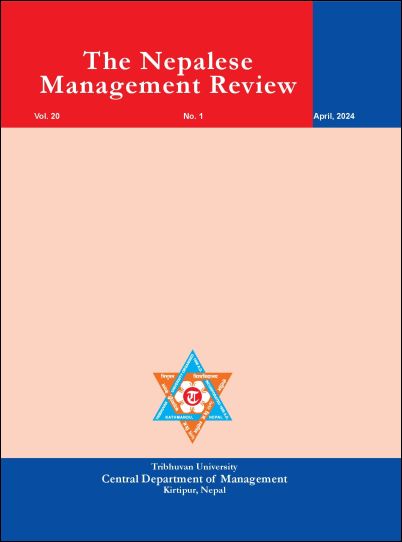Effectiveness of Value Added Tax (VAT) analysis in Nepal
DOI:
https://doi.org/10.3126/tnmr.v20i1.64745Keywords:
Effectiveness, VAT, Administrative efficiency, VAT rateAbstract
This research aims to assess the evasion of the Value added tax in Nepal. The specific objectives are: evaluating the VAT evasion on the Nepalese economy; the study follows explanatory research designs. The primary data is collected by conducting field survey using pre-structured questionnaires. Altogether 400 respondents from the four categories are interviewed: 100 from VAT payers, 100 from VAT administration, 100 from VAT experts and 100 from business community all over the country, respondents were requested to indicate their degree of conformity with specified statements using 5-point scale.
The results of the regression model shows that the expected sign of the variable included in the model as per priory expectation. VAT rate complication and complex legal provisions are negatively related, while administrative efficiency and incentive for VAT collection are positively related with VAT collection efficiency. The computed F-statistic is also higher than table value at 95% level of significance. The coefficient of VRC is 0.08932, meaning that the change in 1% on VAT rate will decreases in VAT effectiveness by 0.089 percent point. The regression model shows that the t-statistic 1.135 and p-value 0.2569>0.05 not significant at 5%. Therefore, the null hypothesis is accepted, indicating that VAT rate has no significant impact on VAT effectiveness.




